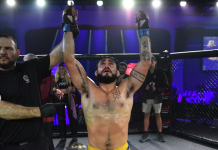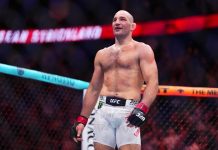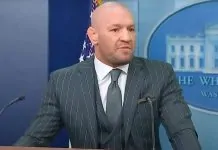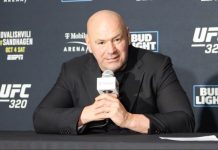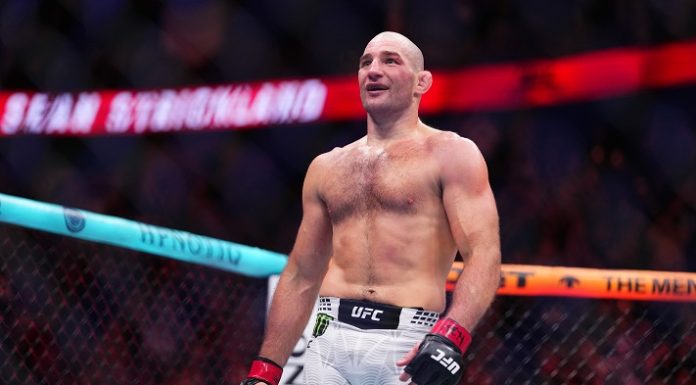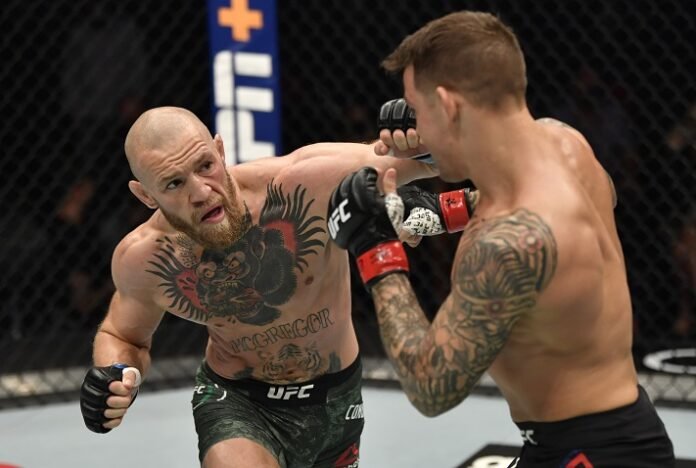
Conor McGregor’s removal from the UFC athlete testing pool over the past year has pretty much become the biggest USADA-related story in the MMA realm since Jon Jones and the infamous “picograms” situation.
Only, there are far less memes this time out.
In a statement to Cageside Press Saturday, a U.S. Anti-Doping Agency representative confirmed that McGregor had indeed been pulled from the testing pool. The organization had previously issued a similar statement to ESPN, noting that they were doing so only because the UFC had already confirmed the news anyway.
The statement, in full, reads as follows.
“Once UFC athletes are enrolled in the testing program, they are subject to testing – even when not competing – unless they notify the UFC of their retirement, their contract is terminated, or they are otherwise removed from the program. In the event of an athlete’s return to the UFC, they are required to remain in the USADA testing pool for six months before they are permitted to compete. Similar to World Anti-Doping Agency rules, the UFC may grant an exemption to the six-month written notice rule in exceptional circumstances or where the strict application of that rule would be manifestly unfair to the athlete, but in both cases under the UFC rules, the athlete must provide at least two negative samples before returning to competition. We do not comment on the testing pool status of any particular athlete unless the UFC does so first. In October 2022, the UFC confirmed that McGregor is not in the USADA testing pool and we can confirm that report.”
This response is similar to one TSN’s Aaron Bronsteter received roughly a week ago, with the only real difference being the final sentence, confirming that yes, McGregor was officially not in the testing pool — which was already known. This latest update came in response to a request for clarification on the UFC Anti-Doping Policy, and particularly section 5.7.3, which states the following:
“5.7.3. An Athlete who gives notice of retirement to UFC, or has otherwise ceased
to have a contractual relationship with UFC due to Athlete-Initiated Inactivity, may not resume competing in UFC Bouts until he/she has given UFC written notice of his/her intent to resume competing and has made him/herself available for Testing for a period of six months before returning to competition. UFC may grant an exemption to the six-month written notice rule in exceptional circumstances or where the strict application of that rule would be manifestly unfair to an Athlete provided that in either instance the Athlete provides a minimum of two negative Samples before returning to competition.”
In this case, it’s the lack of transparency that makes things concerning. McGregor has clearly never retired; he has been adamant since breaking his leg in his rubber match with Dustin Poirier that he intended to return to competition. Inactivity, of course, could apply, though there’s been no public indication that McGregor’s contract has been frozen or that he has otherwise “ceased to have a contractual relationship with the UFC.”
USADA rightfully has to be careful about what info they give out, with respect to athlete privacy. It’s that exact reason that positive drug tests are no longer announced by the organization prior to the adjudication process playing out.
On the flip side, what are the criteria for declaring “exceptional circumstances,” and whose decision is it, ultimately — the UFC, or USADA’s? In a follow-up with Cageside Press, the same USADA official confirmed that “just the UFC makes that decision.”
And therein lies the issue: if the UFC is able to press pause on drug testing for any of its athletes, even in such a roundabout way, you’ve defeated the purpose of having an independent body run the promotion’s anti-doping program. While USADA told ESPN that they “do not think” an exemption would be applicable in McGregor’s cage, on Sunday, they reiterated that it came down to the UFC’s call. “We do not make the decision to grant exemptions to the six-month return from retirement rule,” Cageside Press was informed. “Per section 5.7.3 of the UFC Anti-Doping Policy, the UFC has that authority under the UFC Anti-Doping Program.”
There is likely a very good reason for Conor McGregor being out of the testing pool: as the fighter himself pointed out, he suffered a “horrific” injury when breaking his leg, like Anderson Silva and Chris Weidman before him (note that this is our own speculation, not confirmation from USADA). Few but the most fervent of detractors would begrudge him every opportunity to heal and regain not just his career but quality of life. This is exactly the sort of situation that TUEs (therapeutic use exemptions) exist for.
McGregor, meanwhile, seems to believe that two tests is all it will take to get back in the game — suggesting that, at the very least, he’s aware of the possibility of an exemption, even if he hasn’t outright been told by UFC officials that he will qualify for one.
Regardless, any exception for participation in the drug testing pool should not come at the whim of the UFC.







